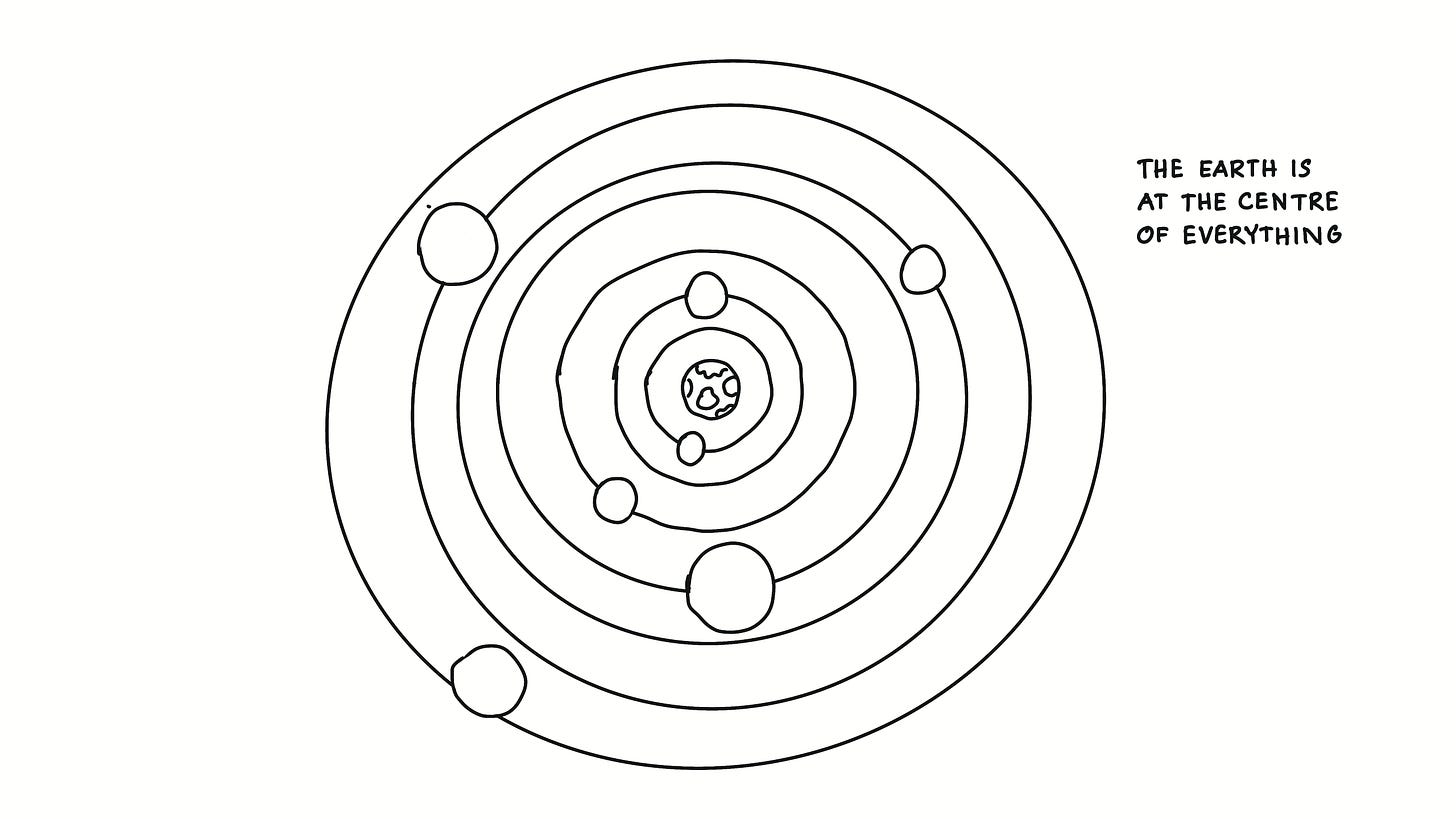👋 Hey there! My name is Abhishek. Welcome to a new edition of The Sunday Wisdom! This is the best way to learn new things with the least amount of effort.
It’s a collection of weekly explorations and inquiries into many curiosities, such as business, human nature, society, and life’s big questions.
The latest two editions are always free, the rest are available to paid subscribers.
Also, if you like this essay, could you do me a favour and hit that grey 🩶 heart so that it becomes a red ♥️ heart? This signals Substack to recommend it to other readers.
Q: Are there any downsides to favouring simplicity over nuance?
We are told that the simplest explanations are usually the right ones. After all, why complicate something more than you need to?
This assumption is often applied in everyday life, while unfortunately it is not always true.
The idea that simple explanations are more likely to be correct than complicated ones is known as Ockham’s Razor or Occam’s Razor — named after the English medieval monk and philosopher William of Ockham.
A well-known example is the overthrowing of the geocentric model of the universe which placed the Earth at the centre of the cosmos, with all celestial bodies orbiting it in perfect concentric spheres.
Over time, as observations of planets became more precise, the geocentric model required numerous complex additions, such as epicycles (smaller circular paths) for some planets and shifts in the Earth’s position.
However, in the 16th century, Nicolaus Copernicus introduced the heliocentric model, which placed the Sun at the centre of the universe. This model was simpler, more elegant, and did not require the cumbersome extras present in the geocentric model.
All well so far! But this argument does carryover in all cases.
Take Darwin’s theory of evolution, for example. If we are to truly apply Occam’s Razor to the complexity of life on Earth, then surely the non-scientific theory of creationism — that all life was created as it is today by a supernatural creator — is far simpler than Darwinian evolution.
Occam’s Razor in reverse.
What I’m trying to say is that the simplest explanation is not necessarily the correct one. In other words, a new theory should not replace a previous one just because it is simpler or because it has fewer assumptions.
The corollary is also true: A new theory should replace a previous one even if it’s more complex and less intuitive, as long as it is better.
A better theory is one that is more useful. It’s the one which makes more accurate predictions about the world.
Simplicity is not always what we should strive for. To paraphrase something that Einstein (allegedly) said, “We should try to make things as simple as possible, but no simpler.”
Nevertheless, the notion that simplicity is superior is rampantly widespread, leading to a rise in simplistic arguments (proposed mostly by simpletons), especially concerning ethical and political matters.
These arguments overlook nuances and complexities, boiling everything down to the simplest form, often expressed through pithy memes and pointed tweets that lack any depth or nuance.
This only leads to more tribal behaviour — us v them, left v right, liberals v conservatives All black and white, and no room for grey lines.
Too many people communicate this way only because too many people are not prepared to put in the effort to look a little deeper and think beyond the superficial.
They say, “Keep it simple, don’t overwhelm me with details.” However, it’s remarkable how much clearer and easier to grasp an issue becomes when we embrace its complexity and view it from various angles.
This reminds me of a story about the great physicist (and one of my heroes) Richard Feynman being asked at a party to explain, briefly and simply, why he was awarded his Nobel Prize. He responded in a classic Richard Feynman manner. “If I could explain my work briefly and simply, it probably would not have merited a Nobel Prize.”
Truth is often not so simplistic. Even objective truth.
This idea is something that all physicists are familiar with — through the concept of frame of reference. Imagine you are driving a car playing catch-catch with a ball, while your friends is observing you from the street.
Both you (inside the car) and your friend outside are correct in what they see. This difference in perception happens because you both have different frames of reference.
If objective truths can also have a point of view, just imagine how much more complex subjective truths concerning human rights, ethics, etc. can be.
It is human nature to look for the simplest account of something we don’t understand. This is fine. But this becomes a problem when we hang on to these simplistic versions even in the presence of more nuanced explanations.
The simplest explanation is not necessarily the right one. It is a lesson we would do well to carry over into our everyday lives.
We are currently living in an age of soundbites, slogans, and instant access to news and information, which has coincided with a move towards more-strident and uncompromising opinions.
This is causing society to become increasingly ideologically polarised, with complex issues that require open debate and thoughtful analysis being reduced to black or white. All shade is lost, leaving just two opposing views, with the antagonists unwavering in their certainty that they are right.
In fact, anyone daring to highlight that an issue is more complicated than either side wishes to admit can find themselves attacked by both sides — if you’re not 100% with me then you are against me.
The bottom line is this: Just because we want to have simple solutions to problems doesn’t mean they are the best ones. As a thumbrule, simple arguments are never the right way to understand complex issues. We have to think complexly about complex problems.
Before You Go…
If you’re finding this newsletter valuable, share it with a friend. Also, consider subscribing. If you aren’t ready to become a paid subscriber yet, you can also give a tip by buying me a coffee. ☕️
I’ll see you next Sunday,
Abhishek 👋
PS: All typos are intentional and I take no responsibility whatsoever! 😬














“The idea that simple explanations are more likely to be correct than complicated ones is known as Ockham’s Razor or Occam’s Razor — named after the English medieval monk and philosopher William of Ockham.”
you’re on the right track, but this is not entirely accurate. occam’s razor is about avoiding unnecessary complexity, not aiming for simplicity for it’s own sake. it encourages us to choose the hypothesis that makes the fewest assumptions and thus introduces the least amount of new, unproven variables
this often results in simpler explanations, but the aim is not simplicity itself, but parsimony — the sparing use of speculative or unsupported elements in our explanations. this doesn't mean that more complex explanations are never accurate, but they require more substantial evidence before they should be accepted over less complex alternatives
occam’s razor is also mainly a guideline for hypothesis formation. it suggests that the simplest explanation that fits the data is the best place to start, but not necessarily the final answer. further testing and observation may reveal that we need a more complex explanation. in other words, it doesn't replace rigorous scientific testing and verification
creationism does not follow this guideline as it introduces unnecessary, untestable assumptions, starts as a conclusion rather than a hypothesis, and lacks observable data. natural selection requires far fewer assumptions about darwin’s observations and is a starting point for further investigation
pretty much everything else you have described is already built into the definition of occam’s razor. what you’re really challenging are the common misconceptions & oversimplifications of the concept